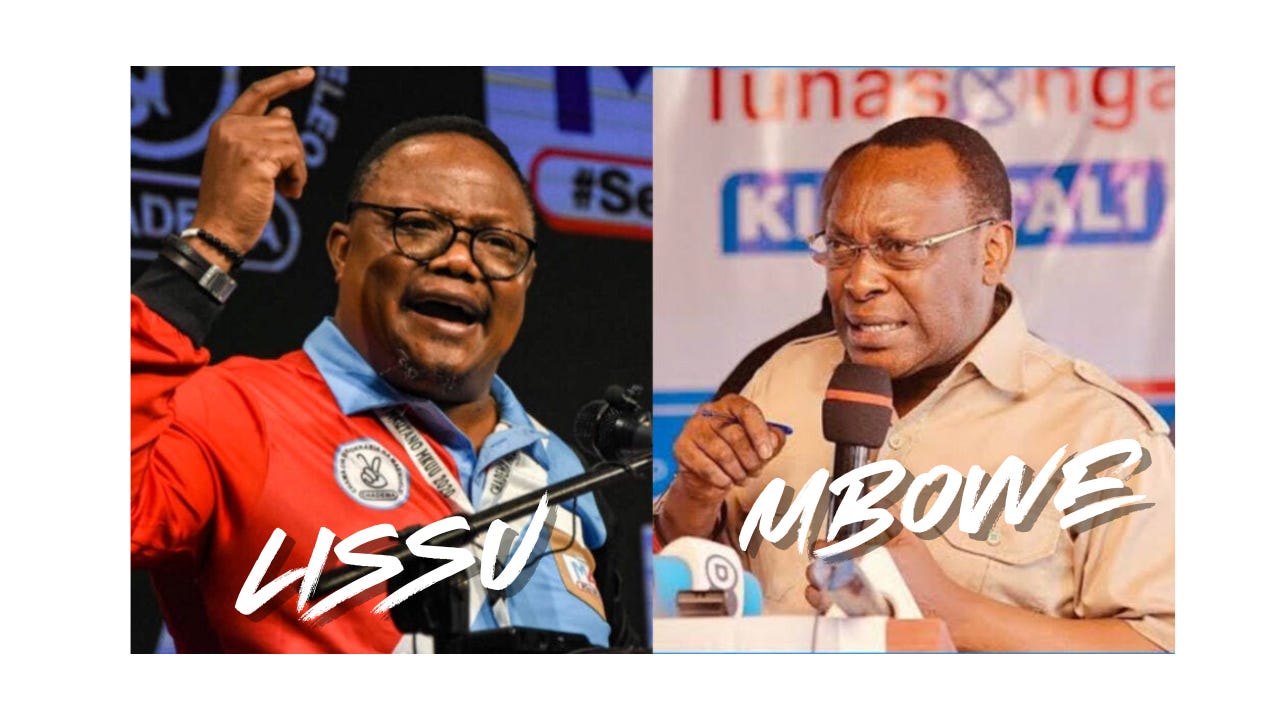The Fragility of Opposition Politics in Tanzania: An Analysis of the Mbowe-Lissu Rift in Chadema's Leadership
Tanzania’s opposition politics, despite a 33-year existence since the reintroduction of multiparty democracy in 1992, remains a fragile construct, riddled with internal discord, state interference, and institutional weaknesses. The ongoing leadership rift between Freeman Mbowe, the incumbent chair of Chadema (Chama cha Demokrasia na Maendeleo), and his vice-chair, Tundu Lissu, provides a glaring illustration of this fragility. This conflict transcends mere internal party rivalry; it reflects broader structural and systemic issues that continue to undermine the maturity and stability of opposition politics in Tanzania.
This analysis explores the implications of the Mbowe-Lissu conflict within Chadema and its broader significance for opposition politics in Tanzania. The discussion delves into the historical and socio-political context of Tanzania's multiparty system, the dynamics of Chadema as a leading opposition party, and the ramifications of internal divisions for the party and the democratic landscape of the country.


